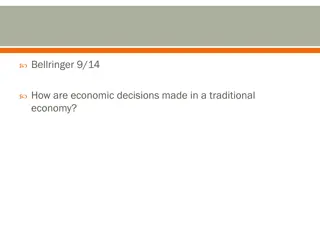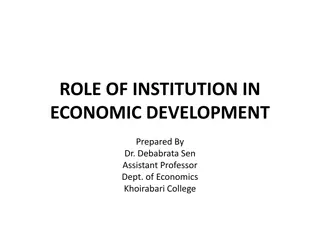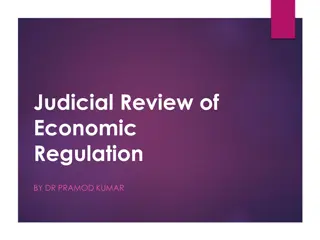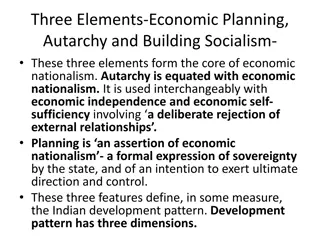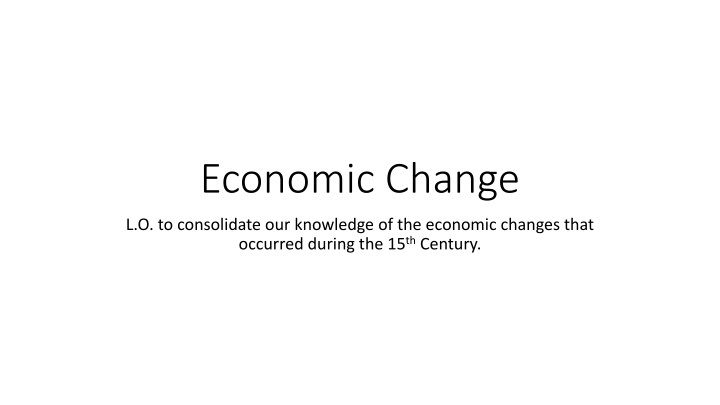
Economic Changes in 15th Century England
Explore the predominant agricultural nature of the English economy during 1485-1509, with a focus on agriculture, trade, industry, and important rebellions such as the Yorkshire Rebellion in 1489 and Cornish Rebellion in 1497. Assess the significance of agriculture, trade with the Netherlands, and the mining industry in shaping England's economic landscape. Delve into the stability of English society under Henry VII and the developments in mining technology and wool trade.
Download Presentation

Please find below an Image/Link to download the presentation.
The content on the website is provided AS IS for your information and personal use only. It may not be sold, licensed, or shared on other websites without obtaining consent from the author. If you encounter any issues during the download, it is possible that the publisher has removed the file from their server.
You are allowed to download the files provided on this website for personal or commercial use, subject to the condition that they are used lawfully. All files are the property of their respective owners.
The content on the website is provided AS IS for your information and personal use only. It may not be sold, licensed, or shared on other websites without obtaining consent from the author.
E N D
Presentation Transcript
Economic Change L.O. to consolidate our knowledge of the economic changes that occurred during the 15thCentury.
Positive Negative Trade with the Netherlands Trade elsewhere Industry Agriculture Living standards
How significant was the position of agriculture in the English economy in the years 1485 1509? Introduction The period 1485 1509 saw the significant development of non-agricultural aspects of the English economy. However the English economy was predominantly agricultural in its nature. The English economy was therefore fundamentally an agricultural economy. Agriculture was the most important part of the English economy in the years 1485 1509. Importance of the cloth trade. Agriculture = farming Agrarian = farming Pastoral = farming animals Industry = making things Cereal farming = growing cereals Importance of the mining industry. Importance of trade. In conclusion it is clear that the English economy was ultimately an agricultural economy. It dominated people s lives and accounted for the Lion s share of economic activity. Despite growth in the wool trade this too was ultimately reliant on the produce of the agricultural products of sheep rearing. Therefore we can conclude that, despite the small contribution made by mining, the English economy was wholly dependent on agriculture from 1485 -1509.
Yorkshire Rebellion 1489 What were the causes of the rebellion? Describe the events of the Rebellion The rebellion was a threat to Henry s reign The rebellion was NOT a threat to Henry s reign .
Cornish Rebellion 1497 What were the causes of the rebellion? Describe the events of the Rebellion The rebellion was a threat to Henry s reign The rebellion was NOT a threat to Henry s reign .
Using your knowledge of the period assess how convincing the arguments in Extract 1, 2 and 3 on pages 40, 41 and 42 arew Convincing Not convincing Extract 1 Extract 2 Extract 3
English society under Henry VII remained the same and stable. Agree Disagree Mining industry stayed the same in terms of trade. Developments in mining technology e.g. the pump in northern coal mines Common rights remained. This looked after the poor. Increase in trade in wool with the continent. This made wool more affordable. Increased the crown s revenue from taxes. The social structre stayed largely the same. The key parts of the political system whilst changing a bit remained largely the same. E.g. a personal monarchy still ruled. England began to develop their wool manufacture by dyeing the wool domestically. This increased English reveunes. This led to the development of a wage labourer class. This increased the amount of cash the Crown received. Parliament was still used to assist the king in his government. 90% of the English were subsistent peasant farmers. Post black death the population recovered in the 1480s 90s. This meant that more land came under agricultural use. This caused the growth of the peasant aristocracy . The social structure was therefore changing. The growth of the minor gentry occured too. Increased taxation under Henry VII increased social discontent leading to political challenges against the ruling elite.
Henry VIIs economic policy took precedent over all others. Assess the validity of this view.




